These are the mental health related books I wanted to review during #ShatteringStigmas! The good news is, these are all quite accurate representations of mental health, in my opinion, and all got at least 3.5 stars from me! So that, my friends, is a wiN!
Girl in Pieces by Kathleen Glasgow
What Happens Now by Jennifer Castle
Finding Audrey by Sophie Kinsella
How It Feels to Fly by Kathryn Holmes
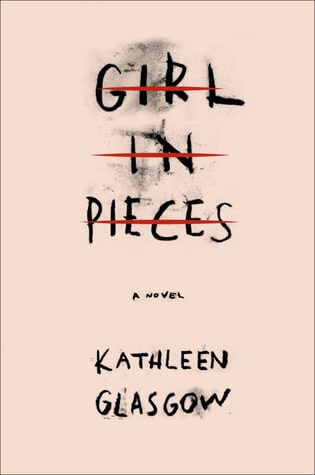 Girl in Pieces by Kathleen Glasgow
Girl in Pieces by Kathleen Glasgow
Published by Delacorte Press on August 30th 2016
Pages: 416
Format:ARC
Source:Copy provided by publisher for review, via Netgalley, BEA 

For fans of Girl, Interrupted, Thirteen Reasons Why, and All the Bright Places comes Kathleen Glasgow’s debut novel about a girl who has lost everything—almost even herself.
Charlotte Davis is in pieces. At seventeen she’s already lost more than most people lose in a lifetime. But she’s learned how to forget. The broken glass washes away the sorrow until there is nothing but calm. You don’t have to think about your father and the river. Your best friend, who is gone forever. Or your mother, who has nothing left to give you.
Every new scar hardens Charlie’s heart just a little more, yet it still hurts so much. It hurts enough to not care anymore, which is sometimes what has to happen before you can find your way back from the edge. A deeply moving portrait of a teenage girl on the verge of losing herself and the journey she must take to survive in her own skin, Kathleen Glasgow’s debut is heartbreakingly real and unflinchingly honest. It’s a story you won’t be able to look away from.
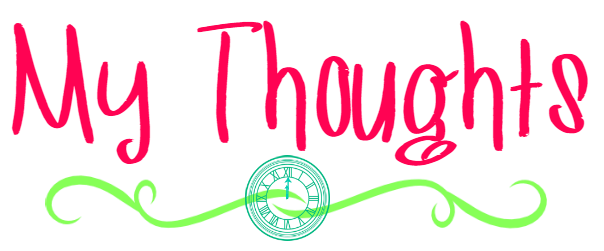
Guys, this book is heavy. In a good way, but still, know that going in. It’s going to fucking hurt. Because Charlie hurts- she hurts inside, and she transfers that pain to the outside. Your heart will absolutely break for Charlie, because man, she has been dealt a very crappy hand in life. And I think that the portrayal of mental health and the issues surrounding it is so, so accurate. For example:
- The highs and lows, the progress and regression, are so spot on. Mental illness is definitely not some pretty linear path, which is why I think it is fantastic that the author shows the ups and downs of Charlie’s progress so vividly. She hopes (and tries!) to be “better” and stay that way, but it doesn’t always work out- and that is so, so realistic.
- Charlie doesn’t have any money, so she gets subpar care. This is another sad but true reality. Charlie doesn’t have the funds to cover the psychiatric facility, so as soon as they deem her “not a threat”, out she goes. Does the staff feel bad about it? Sure, but it isn’t like there’s a thing they can do about it, really. That’s the system, it’s absolute bullshit, but it is an incredibly realistic situation.
- Charlie’s inner dialogue of feeling isolated felt incredibly authentic. She was really hurting, and it was so clearly portrayed.
“I’ve always felt like an intrusion, a giant blob of wrong. My mother was always telling me to keep quiet, not to be a bother. ‘Nobody’s interested, Charlotte,’ she’d say.”
There are lots of things that work about the story, really. Charlie is looking for love, of course- not just romantic love, but any kind of love. Her mom basically deserted her, her best friend is gone, and the only person who seems to care isn’t really as available as she’d hoped. So of course she finds some of the right kind of friends… and some of the wrong kind too. Not that any of the people were inherently “good” or “bad” (because is that even a thing?), but some were just not good for Charlie. And some were absolute blessings.
“‘Everything and everybody that’s busted can be fixed. That’s what I think.'”
Charlie’s determination was also pretty awesome. For her to try to rebuild her life, that takes an incredible amount of courage. And like I said before, it isn’t a straight path.
For me, the only real issue I had with the book was that (and this is mostly in the beginning) I didn’t feel fully connected to Charlie, and it was a slow start. I understand really that Charlie was barely connected with Charlie at that point, but it still made for a bit of difficult reading at the start- and not just the emotionally difficult kind.
That aside, by the time the book was through, while I didn’t have the same feelings or experiences as Charlie, I definitely felt like I had a much better understanding of her and how her life spiraled so badly. It was heartbreaking, but lovely.
Bottom Line: If you can handle the harsh realities of the self-harm in this book, it is an absolute must read. The insight into Charlie’s world and her illness is phenomenal, and definitely thought provoking on many levels.

 What Happens Now by Jennifer Castle
What Happens Now by Jennifer Castle
Published by HarperTeen on June 7th 2016
Pages: 384
Format:eARC
Source:Copy provided by publisher for review, via Edelweiss 

"I know what it is to want something so badly, you feel like your cells aren’t properly bonded together without it. I also know what it’s like to get that something.And honestly, I’m still not sure which is worse..."
Ari Logan is battling to win her war against depression and the dark night she hurt herself on purpose. It’s not easy: her best friend is drifting away, her mom’s emotionally checked out, and she spends her days playing caregiver to her handful of a half-sister, Danielle. But it’s summer, and anything is possible...
That’s when Camden Armstrong steps onto the beach of Ari’s local swimming lake.
At first, Ari quietly longs for Camden from afar, seeing in him everything she wants to be. When the two discover a true connection the following summer, Ari lets herself fall not just for the quirky and self-assured Camden but also his friends, tumbling into their world of independence, adventure, and shared sci-fi fandom. As Ari’s romantic dreams come true, she must unlock the mysteries of the very real and troubled boy behind her infatuation, while also struggling with her own demons, obligations, and loyalties.
From the award-winning author of "The Beginning of After" and "You Look Different in Real Life," "What Happens Now" is a touching, insightful novel about learning to heal, learning to love, and what happens when fantasy becomes reality.
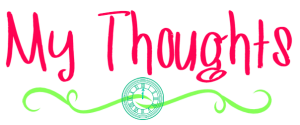
True story, I needed this book from the minute I saw the cover. But I am so glad that I read it, for much more than the outside! Ari’s story was a lovely one of trying to pull herself out of depression, and regain her life, all while navigating family, friends, love, and life.
Things I Loved:
- The depiction of Ari’s depression and mental health. Ari had been having a really bad time, but things had been slowly getting better. This wasn’t a “quick fix” situation, but we start the story after Ari had been seeing someone to help with her mental illness. She still had moments of ups and downs, and still was feeling the pull of her depression all the time. It was portrayed as a constant struggle, and I liked that level of accuracy.
- The friendships! While there is a romantic storyline in the book, I liked the friendship element even more. When Ari begins to see Camden, she also ends up befriending his friends. I think it was great to see Ari not just as a tagalong of Camden, but an actual friend in the group. She also has a best friend from pre-Camden, which is nice. It’s fun seeing her try to juggle the friend groups, just like any teen would.
- Family dynamics play a huge role. I daresay we are seeing more of the family involvement in YA, lately, and I LOVE IT. Ari’s family is both messy and wonderful. Her stepdad is the actual best. I love him and I am so glad that he was in Ari’s life. Ari’s mom isn’t the best support figure, so I was glad she had the stepfather to help her along. And she has a sister, who she loves, but is also annoyed by from time to time, which is so realistic, of course.
- The realism of the relationship. Camden was in no way sent in to “fix” Ari. Or she him. Basically, they have some… interesting (and at times, troubling) dynamics, but I liked that he wasn’t just some plot device thrown in to “make Ari not depressed”.
- The fandom/cosplay. Gah, this was fun! There was this show, Silver Arrow, which had been around forever, and then there was a reboot… anyway, as it turned out, Ari had been a huge fan forever, and then so were Camden and his gang, so they got to do all kinds of fun fandom things, and dressed up as characters and such. It was just a fun addition to the story, and I liked that the show had a meaning to Ari behind just liking it.
What I didn’t:
- I do wish a bit more of the story had been devoted to Ari’s recovery. Granted, I understand that not all of a story needs to revolve around the depression, but since she wasn’t really doing great, I think there could have been a bit more exploration in the way of treatment.
- While I don’t think that Camden and Ari’s relationship was portrayed irresponsibly, I just didn’t love it. At first it was cute, but then as the book progressed, I wanted Ari to ditch him and go cosplay with her new friends. Is that bad?
Bottom Line: Overall, a really sweet story about family, friendship, and first loves. I would have liked a bit more emphasis on Ari getting treatment, but I think that her depression was accurately portrayed.

 Finding Audrey by Sophie Kinsella
Finding Audrey by Sophie Kinsella
Published by Ember on May 3rd 2016
Pages: 304
Format:Paperback
Source:Copy provided by publisher for review 

From the #1 New York Times bestselling author of the Shopaholic series comes a terrific blend of comedy, romance, and psychological recovery in a contemporary YA novel sure to inspire and entertain.
Audrey wears dark glasses all the time, even in the house. She almost never goes out, doesn’t talk to new people, and finds making eye contact to be nearly impossible. But then one day she meets Linus. Linus is her brother’s friend and a sensitive spirit with whom she can talk through her fears. He makes her laugh and doesn’t leave her feeling like she’s being judged. As their friendship deepens, Audrey’s recovery gains momentum, and she and Linus begin to develop feelings for each other. But how can they have a future together when Audrey hasn’t dealt with her past? And how could anyone ever love her once they’ve seen her at her worst?“An outstanding tragicomedy that gently explores mental illness, the lasting effects of bullying, and the power of friends and loving family to help in the healing.”—Kirkus Reviews, Starred
“Kinsella’s knack for humor and sensitivity shine.” Publishers Weekly

My favorite thing about this book is that it doesn’t bullshit. It doesn’t paint an unrealistic picture of what it is like to need help, to find help, and how help is easily available to the privileged, but not necessarily everyone else. This line is so accurate, it hurts:
“The first question they ask when you arrive isn’t ‘How do you feel?’ It’s ‘Do you have insurance?'”
Thing is, that is how so many places really are. It’s a money maker, first and foremost. Help is secondary. But Audrey does find a doctor to help her, so that is good. (Also, not at all a spoiler, it’s in the synopsis.) I think Audrey relates to her counseling in a way that felt quite realistic to me. She wonders from time to time if she should just be like “nah, I’m good”, and of course, she wonders if any of it is worth a damn (which, if you’re anything like me, you totally have wondered). There’s also a moment where Audrey says her mom worries about being blamed, which is an experience I have had too.
“I think she’s secretly poised for the day Dr. Sarah says ‘Well Audrey, of course it’s all the fault of your parents.'”
Audrey’s family is also kind of a hot mess. Fine, not kind of, is. Her mom is dealing with what is probably her own particular brand of mental illness, though she doesn’t appear to be diagnosed with any in the book, it’s rather clear that something is going on. Felix, her younger brother, is the actual sweetest thing ever though. And it’s clear that despite all their issues, they do genuinely all care about each other as a family.
Some other things I loved? Sure!
- Real talk about meds. Seriously, there is actual discussion about withdrawal effects. This nearly never happens in books, and damn, I was happy to see it here. Dr. Sarah actually tells Audrey about them, too! Can I hug Dr. Sarah? This is such a real thing for so many people, and it is consistently glossed over by medical personnel, and I am so grateful to see it in this book. There’s also discussion about the perils of one stopping one’s medication when they feel “better”, which is a super common phenomenon that isn’t discussed nearly enough.
- Misconceptions by friends/family/etc are discussed. There is a situation where a friend’s parent was afraid to let the kid talk to Audrey again because “Mum said you must be bipolar” and “Bipolar people can become violent”. Audrey shuts this shit down, on so many levels. Because what even, right? Well, these stereotypes absolutely do exist, so it is awesome that the book addressed them- and negated them!
- There’s talk about setbacks, and how there is no real “cure”- but that doesn’t mean there isn’t hope, and getting better, and living your life. I think the message was both realistic and positive, which is a hard balance. This book also uses humor (which you can read about in Vlora’s post here) which I think works well to show that yes, people with mental illness can have fun, be funny, and still struggle.
A Few Things I Didn’t:
- Audrey’s recovery seemed too quick/easy. I am not saying that it was, but it felt that way. I know that she was also recovering before we pick up her story, but she goes from basically agoraphobic to Starbucks wayyy too fast to feel authentic to me.
- Linus… I am on the fence about him, basically. Like, I am not saying he “fixed” her, because he didn’t, but I don’t love that he was the catalyst for her to want to change. Like, had some dude never waltzed into her brother’s life, Audrey’d still be in her room? I don’t know, it doesn’t quite sit well with me. And sometimes I liked Linus, but other times he was just so damn clueless. Which, I guess is realistic, but that doesn’t mean I have to like it.
- There were some…. little things. Things that maybe wouldn’t have bothered anyone else? Like, they talk about having chickenpox… but I don’t think that is still a “thing”? (Actually, upon further research, apparently the UK does not actively vaccinate healthy people against chickenpox. Here, it is a requirement, hence my confusion. Well, the more you know, right? Now you can be not confused!) And there’s a bit where Audrey talks about her parents not even knowing how to double-click, or open a picture on Facebook and I am like… these people are 38 years old, not 108, I am pretty sure they know how to operate a Word document. This could just be me, as a person not much younger than that, being a bitter old person though 😉
Bottom Line: I felt like this was an overall good representation of mental health, including some of the problematic aspects in the treatment of mental illness in general. Audrey felt like a realistic character, and her struggles were quite authentic.

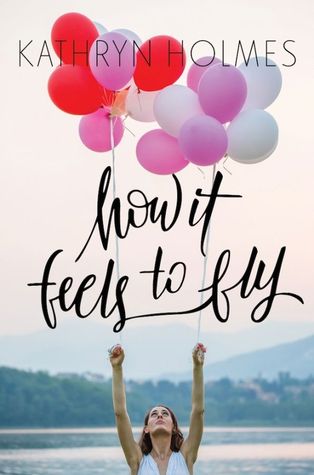 How It Feels to Fly by Kathryn Holmes
How It Feels to Fly by Kathryn Holmes
Published by HarperTeen on June 14th 2016
Pages: 368
Format:eARC
Source:Copy provided by publisher for review, via Edelweiss 

A struggle with body dysmorphia forces one girl to decide if letting go of her insecurity also means turning her back on her dreams.
Sam has always known she’d be a professional dancer—but that was before her body betrayed her, developing unmanageable curves in all the wrong places. Lately, the girl staring back at Sam in the mirror is unrecognizable. Dieting doesn’t work, ignoring the whispers is pointless, and her overbearing mother just makes it worse.
Following a series of crippling anxiety attacks, Sam is sent to a treatment camp for teens struggling with mental and emotional obstacles. Forced to open up to complete strangers, Sam must get through the program if she wants to attend a crucial ballet intensive later in the summer. It seems hopeless until she starts confiding in a camp counselor who sparks a confidence she was sure she’d never feel again. But when she’s faced with disappointing setbacks, will Sam succumb to the insecurity that imprisons her?
This compelling story from Kathryn Holmes examines one girl’s efforts to overcome her worst enemy: herself.

If you recall in my intro to Kathryn’s post during this event, I told you that I read this book, then raced to my laptop to find her contact information to ask her to be part of this event. That is no exaggeration- I loved this book, and it was also quite clear that Kathryn had a very real understanding and compassion in regards to mental health.
In How it Feels to Fly, we meet Sam. Sam is a dancer. At first glance, I assumed I’d never relate to Sam, because I am about the least coordinated person in ever. But oh, how wrong I was. See, as a swimmer with a non-swimmer body, I totally related to Sam. As a person who didn’t feel comfortable in her own skin I related to Sam, and in about a billion other ways, I related to Sam.
“‘I’m angry at my brain for not being able to handle, like, life,’ I finally spit out. ‘For screwing up everything I care about. I am so, so mad at myself.'”
The thing is, Sam is a relatable character. You may not have the exact issues that she has, but you still cannot help but root for her, and want to understand her more. And all the characters at the camp were quite unique voices. They all had something different that first brought them to the camp, but they all had something to offer each other, which was nice.
I liked the focus on therapeutic situations. Not just actual therapy, but the whole tone of the camp in terms of trying to work through the fears and such were really great. There were fun moments in the book too, which balanced out some of the tougher ones. Sam is so, so hard on herself, and those moments lightened the tone, but in an appropriate way, not in an irreverent one.
“Jenna blinks at me. ‘I’m sorry, did you just make a Nancy Kerrigan joke?’ ‘Too soon?'”
Sam’s mom was a huge obstacle to her recovery. Not because she didn’t care about Sam; she did. It was more that she had no idea how to be supportive in a non-judgmental way. And she was kind of too wrapped up in her own wants to realize the toll it was taking on Sam. Their relationship was a huge focus in the book, as it should have been.
This is not a romance-centered book, and that’s really all I plan to say about that part of it. And I think that is actually a huge strength in this book, because inserting a big love story would have taken away from Sam’s story and journey.
The only mild issue I had with the book came toward the end, so spoiler tags for everyone! View Spoiler » But overall, it was most definitely a huge, huge win.
Bottom Line: Je l’adore, clearly. Not only was it spot on in terms of mental health portrayal, it was a damn good story to boot.

Have you read any of these books? Planning on it? Let’s talk about them!
What is the last mental health book you read that was really, really great?
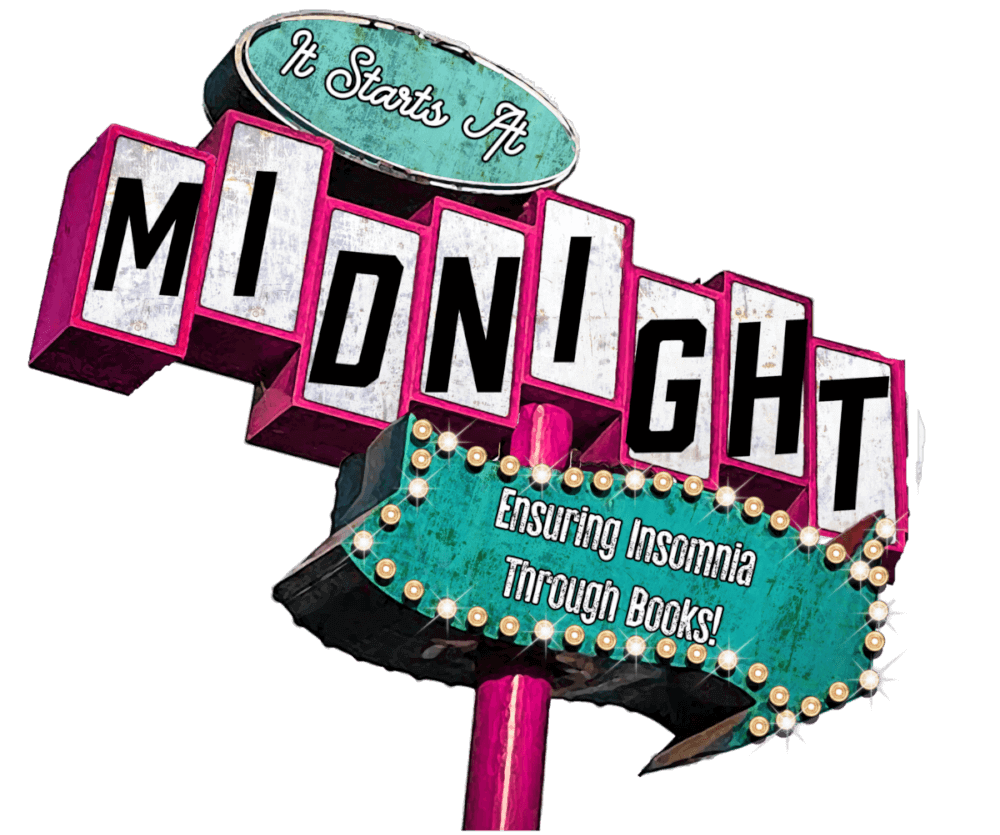
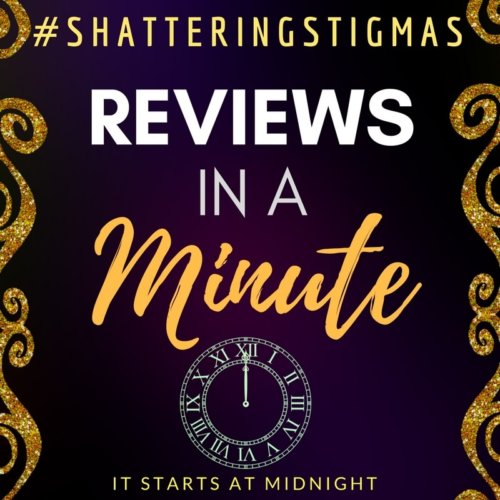

Well I officially want to read Girl in Pieces! I’m actually shallow enough that I kind of haven’t considered it much because of the pink cover.? I’m just not really a pink person, ahem. BUT ANYWAY. It sounds really well written and emotional and just … yup. #need
I’m glad Finding Audrey worked for you.? I hate that book with a fiery passion. I thought it was totally insensitive and that the humour ended up mocking the anxiety and stuff and yeah…I didn’t even finish. So I should probably shush since I did DNF it.?
I haven’t read any of these, but I laughed at that insurance quote you posted from Finding Audrey. That is totally true . . .
I actually felt more connected to Charlie during the first part, then the other parts of the book. All of her feelings were spot on for self-harm. It shows the author really went through that since it’s all so real. I really enjoyed that book a lot.
How It Feels to Fly is a 2016 fave for sure! Sam is beyond relatable with her thoughts and that inner voice that we all have. I loved it so much! And I loved that the romance wasn’t the center of things.
Some of these look really good. I really enjoy reading books that expand my worldview. Thanks for sharing!
Girl In Pieces is high on my TBR. Just reading about it kind of breaks my heart but I’m still so interested in Charlie’s story.
I really want to read Girl in Pieces, but I just know I won’t be able to handle the content from what I’ve heard. So I might wait a little bit, when I’m in the mood.
So really the only book I’ve read is How It Feels To Fly, and I very much agree with your spoiler. Just from experience with head strong, stubborn, (annoying), parents (mainly moms), it just doesn’t happen that easily. And I wish it did, but nope.
Great reviews!! I’ve been wanting to read Girl in Pieces, but now I want to read it even more. 😀
I haven’t read any of these, so I was happy to see these reviews! So many fantastic books out there that touch on these important topics!
Oh Charlie . . . Girl in Pieces broke my heart so much. You have seen my review, so you know we both loved it (naturally). I hadn’t even thought about the realism of Charlie not getting the care she needed because of money. I can imagine that is the issue with a lot of people. I mean, people can sometimes barely afford to get the care they need for physical illnesses. I can understand that people probably need to fight a lot harder with the mental ones. I need to read How it feels to fly. It sounds like I would also be able to relate to that main character and if you loved it, I am sure I will! Great reviews.
Just did some TBR adding! Great reviews. I haven’t read any of these but now I must read Girl in Pieces and How it Feels to Fly!!
A couple of these are books I have and I am really looking forward to actually reading them. How it Feels to Fly is one of those but I was unsure of it until I saw this review. It looks really good and like it handles to the topic incredibly well. I’ll also be reading Girl in Pieces soon and I am going to have to prepare myself because it sounds like the author really doesn’t skip over any of the ugly. Finding Aubrey sounds decent, and I like the idea of real med talk because that doesn’t happen too often in books addressing mental health.